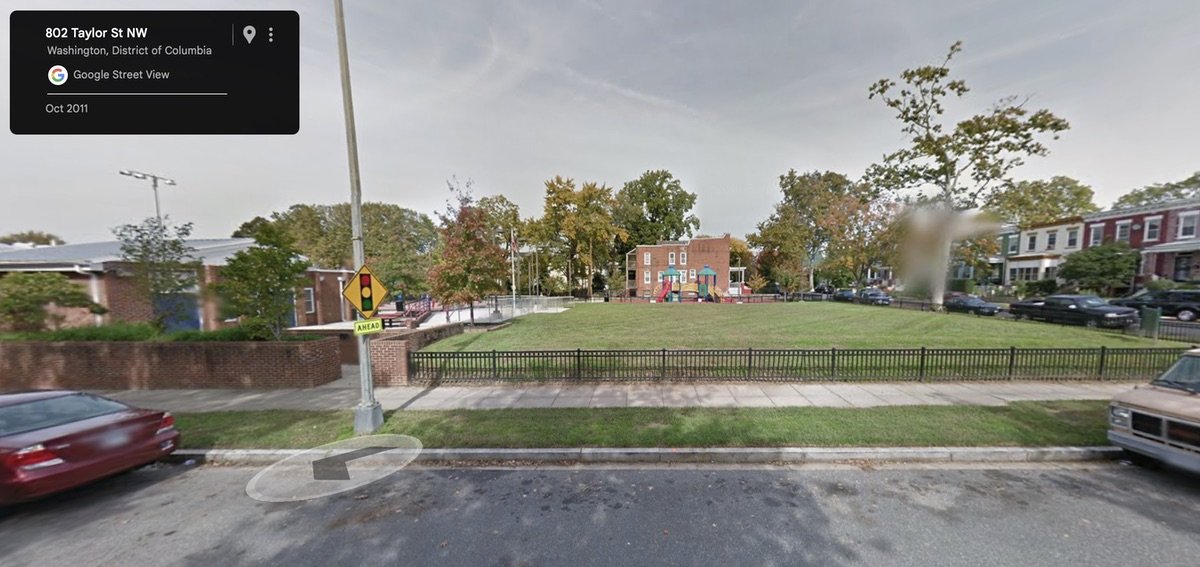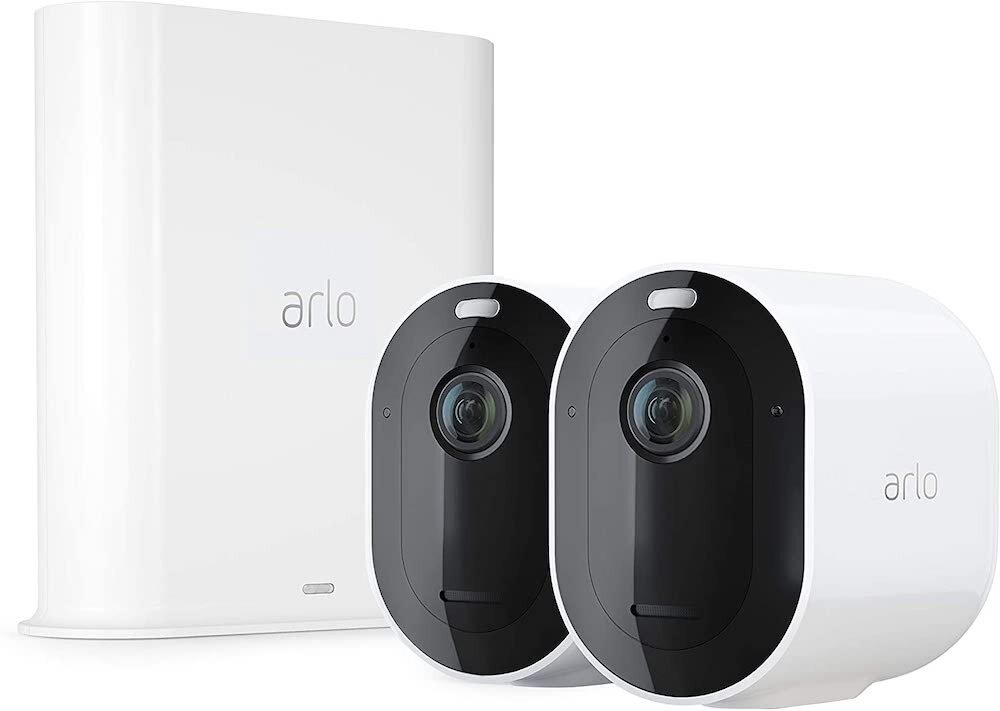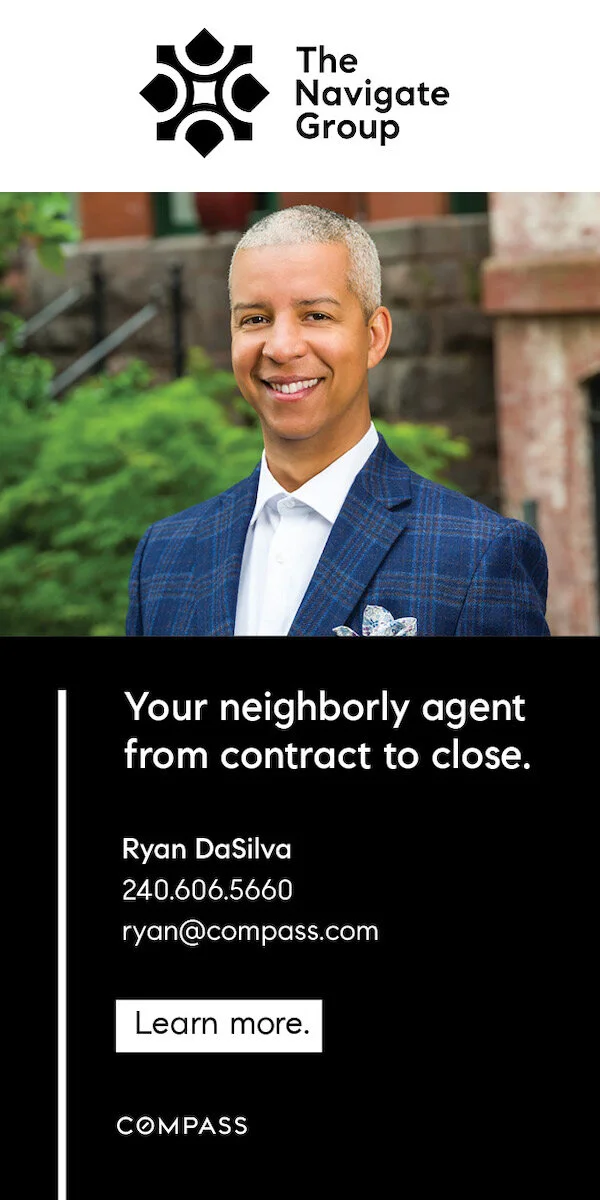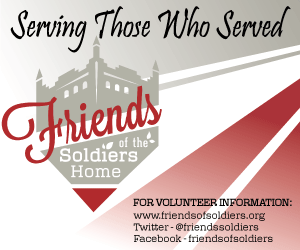A conversation with David Garber, candidate for At-Large Council
/I met David Garber at DC Reynolds in Park View to talk about his candidacy for the upcoming At-Large Councilmember election. I met David over a year ago when Petworth News was just starting out and David was a community activist. He impressed me then with his energy and his passion for local-level politics and representing the needs of residents over the needs of politics. We spent a little over an hour outside under an awning in the middle of an intense thunderstorm talking about his ideas and why he's running for the At-Large seat. David provided written responses to questions I provided ahead of time (see the those answers in a different article),
Read David Garber's campaign positions on several key topics >
Drew/Petworth News: As an At-Large Councilmember, how will you support Ward 4, not just city-wide?
David Garber: As an At-Large Councilmember, you are responsible to treat each Ward equally, in terms of the attention you give and the time you spend working on issues within the Wards. Ward 4 has similar issues that come up in the other Wards, such as looking at the development that is coming to the Ward is inclusive of the full diversity of people that are here in DC, and that we're taking care to support people who want to be in the city long-term. Ward 4 has a lot of seniors, so the conversation would be about aging-in-place. Plus, for young families with children, they want to make sure they can send their children to quality school. My approach to working with Ward 4 would be similar in how I would work with other Wards. Having lived in a variety of different types of neighborhoods, I understand that each one is different and requires listening to residents and trying to figure out the unique approach that works in that area, so I would want to make sure I was doing that in Ward 4 just as I was doing that in any other community.
Looking at your experience and background, what makes you a good candidate for At-Large?
I'm the most experienced at the community level here in DC of any candidates in the race. I started out advocating here in DC back when I was living in the Anacostia neighborhood from 2007-2010, and that was my first role where I saw the importance of having quality people in these local offices. At the time I was running a neighborhood blog about the Anacostia neighborhood and going to all the ANC and Zoning meetings and was a member of the block association, co-chair of the Historic Anacostia Design Review committee. I learned the value of community participation. I also learned how in certain communities, despite how much input you give to local officials, they don't always listen and don't always fight for you.
I took that civic interest, and when I moved to Navy Yard I ran for Advisory Neighborhood Commissioner and beat out a 14-year incumbent for that seat. I ended up serving two terms in that role in a neighborhood that is being rebuilt from scratch with a ton of development and businesses moving in, going through licensing and regulatory process, infrastructure upgrades, building a new school -- all of that was essentially a full-time job, which I loved doing. One of my biggest goals for that role was to give people a better experience with DC government than they had come to expect. I tried to be a better go-between people and city services, agencies, government and higher leadership. Getting things done and making sure that the residents of the neighborhood felt they were well represented.
My experience as a community elected representative is a big part of my resume for running for an At-Large seat, because so much of the role as a councilmember is constituent services, working with people at the ground level to give them a better experience with their local government and to make sure they feel like their interests are well-represented. I'm focused on public safety and making sure out schools are ones we feel are excellent options for kids no matter where in the district you live. And, making sure that all of the development that is happening in DC, which I find to be very exciting in a lot of ways, is also being done in such a way that we are not pushing people out or making people feel this isn't the place for them for the long term.
Photo courtesy of the candidate.
Is the role of the councilmember a legislator, or in the community as an intermediary and connector to the city and services?
That role has to be both. All councilmembers straddle the line between being legislators, which is 100% of the job, and also being service providers for people in your Ward that are looking for your help. When you're At-Large, that means it's everyone in the District, and you have the same responsibilities as a Ward councilmember but you get to represent every neighborhood in the city and provide the same level of services.
Do you think that's harder to be an At-Large than it would be as an individual Ward councilmember?
I think you have the same capacity as someone in a Ward-level seat, but I think it does give you a little bit of freedom to work with a variety of interests and communities across the District in a different way than a Ward councilmember.
What I hear from you is that it's the community engagement experience that you have, understanding the needs of the Wards, your leadership roles, that you would bring a "grass roots" perspective into the Council. Do you think that experience is enough to counter the claims by other candidates that you don't have enough experience?
So much of the reason I want to run and feel like I provide a great alternative choice in this race is that I do have that community-level experience which is different than what we're seeing in the current councilmember's [Vincent Orange] actions on council, which don't feel like they have a whole lot to do with what residents at the ground level in DC are looking to see come out of this office. The other person in this race [Robert White] has never held elected office before, and I'm sure has done some work in the city in some ways, but I think it does take somebody who understands what it means to be a representative and has fought for neighborhoods in the past.
Outside of my role as commissioner, my different roles have touched the District in some way. Whether it was being a substitute teacher in 40 different schools around the city, working in every single feeder pattern in every Ward and got a great window into the types of educational environments that exist in this city and the disparities that still exist across the District, and what we need to work on to bridge those divides. My career has been in real estate, from all sides of it, from managing a DC government grant program to restoring Anacostia waterfronts to working on renovation projects and leasing and management in the commercial market. I have been very involved with the DC Bridge Park during its creation on the Anacostia river, the MLK Library renovation, on the board of different organizations that do economic development to the Half Street Market Initiative in Navy Yard. I definitely have done a lot of work in and around the District and would look forward to increasing that on Council.
The DC school system has been suffering over the years, and has been making inroads to get better. Between the lottery and charter schools, is the school system good enough beyond Elementary? How long until parents think they need to go someplace else? What are the opportunities for improvement from your perspective?
This is definitely one of those issues that makes people wonder if DC is a place they can live for the long term. That is essentially the main question of my campaign: what can we do as a city to make sure people do feel they can be here long-term? From the school perspective, we're kind of at a middle-ground point right now. We've made a lot of investments and improvements in our traditional school system. We've improved a lot of facilities but still have a ways to go with that.
We've made changes to leadership and administrators and classroom activities, and there's a lot more faith for what's going on with DC Public Schools than there was 10-15 years ago. That said, while people have confidence at the elementary level, that confidence is waning at the middle school and high school, and is something people feel across the city. People who feel like they have options, whether it's charter-based schools or private school or leaving the city, end up doing that after the elementary school age for their children. We absolutely have to continue trying to make improvements in these schools.
If everyone who wanted to stay in the city plugged into their school and got super involved and demanded changes, I think we'd see some of these improvements happen faster. But people also don't want their kid to be a guinea pig in a school system or school that hasn't yet improved, which is understand. That's where I see the value of having options within the District.
Instead of getting into a debate about what's more worthwhile, charter or traditional schools, my priority will always be towards giving people enough options that they feel like their children have an opportunity for success.
Photo courtesy of the candidate.
You mentioned "other modes of transportation" such as bicycles in your answers to the prepared questions, and while I didn't ask this of other candidates, a number of readers have brought up bicycles since the last articles were published, so I want to include it here. What are your thoughts on improving transportation in DC as a councilmember?
Transportation is the way people try to get around the city, and when we give people more than one option they use them. We've done a lot to encourage certain modes in this city, and not a lot over the years to encourage others. I want to take a balanced approach, understanding that some people need to drive, some want to bike, others take the bus or take Metro. Each of these modes have to feel safe, easy to get to and get around with, and efficient in order for anybody to want to use them.
It's important to improve bicycle infrastructure safety, and it's one of the least expensive infrastructure changes you can do. Either it means you're painting lanes or putting up flexible bollards to create cycle tracks -- it's usually not intensive construction. The more you build, the more people will want to bike, which is great in my opinion because it gets people out of cars, it decreases traffic and more environmentally sustainable and one of the least expensive options.
So you support the expansion of bikes lanes across the city?
I would absolutely support the expansion of bike lanes across the whole city.
You talked about support and growth for MPD, and you talked about non-judicial enforcement based strategies of dealing with crime issues. What are your thoughts on public safety, and on council what would your legislative priorities be toward public safety?
I think it's really easy to think about the "immediate now" because you're responding to things that are happening right now and the uptick to violent crime that has happened. So you have to talk about the things you can do now, and trying to increase our police force up to the levels that we're approved to have, and giving officers a better experience if they're going to want to stay in the city.
You can't talk about crime in the District if you don't also talk about the reasons and the pathways that got somebody into a point in their life they feel like doing something illegal or getting involved in criminal behavior is the path for success. If they see that as the only way they're going to make money or have enough to scrape by, we're not doing enough at early ages to give them better options. There are a lot of kids in this city who come from neighborhoods where there just isn't enough opportunity, economic growth or success to point to. There are less examples of family members who have found their pathways to success, so the more we can to do support programs like vocational training and making sure that when we're talking about education in DC, we're talking about what happens outside the classroom as much as we're talking about what happens inside the classroom. For many of these kids, they're not going home to supportive environments, they're going home to places where they're not getting the right food to eat, they're staying up late and they don't have the same type of older person involvement in their lives as kids in typically wealthier communities.
That's a generalization in some ways, but I do believe that it's fairly clear that economic divide in the city leads to an opportunity divide, and is also what leads people to feel like they don't have outside options to get by in a way other than they've seen in their immediate community.
Looking beyond incarceration for kids and young adults who have gotten into trouble in the past or are at risk for getting into trouble in the future, and try to figure out to incentive and encourage them to not do that down the road. Looking at programs that try to curb crime by giving someone a pathway out of their criminal behavior, like mentorship programs and a wrap-around service environment, so people aren't left to their own devices.
There are things we can do to try to increase visibility and police numbers, and to bring back localized drug enforcement units in the neighborhoods. But we're never going to get to the place we want to be public safety-wise if we don't invest in young people as much as possible early on and through their young adulthood because that's where we'll see the longest term change.
There's been pushback on Chief Lanier because she pulled the Vice Squads out of the Wards and centralized them. Do you think the Council has a voice on how MPD is organizing itself, or is that up to the Chief and the Mayor?
The way it is set up right now, a lot of it is up to the Chief and the Mayor, but anytime you have an elected position you have a platform to highlight issues to the public and bring things up with your colleagues to try to shift the conversation and make change happen. With both education and crime, a lot of that has been taken out of the hands of the Council, but you have the budget which is a tool to work with, and you have your platform. Those are not insignificant, and so I would use both.
David Garber and Jeremy Gifford, owner of DC Reynolds
Jeremy Gifford, the owner of DC Reynolds, came up and we ended up in a long conversation about the living wage proposal from Mayor Bowser and its potential impact on the restaurant industry.
Once of the criticisms I've heard of Councilmember Orange is his committee oversight of DCRA. While you obviously wouldn't take his committee leadership role if you won the election, do you see a problem with DCRA, and do you have thoughts on how you might fix DCRA?
DCRA is one of those agencies where you always feel like you have to get something done through a back door if you want to get it done in an efficient or timely manner. I'm running against somebody who has oversight over DCRA and anytime I talk to small businesses, to homeowners who is trying to make an improvement to their home or someone trying to register a business, they always have complaints about DCRA because it doesn't feel like the city is going out of their way to make it an easy process for them to exist in the city. I know we can do more to be business-friendly, and the more efficient our processes at DCRA, we will have more businesses want to locate in the business who are taxable businesses, who aren't being overburdened by the regulatory process.
Do you think DCRA should stay as it is and improved with better oversight or...?
I think we could split DCRA into licensing and permitting, and the regulatory side. We could be doing more to make things easier to do online, instead of wasting time waiting on a line there. One of my proposals is spending the money to create a "turbo tax" like system for businesses who are going through any regulatory process so that not only when you sign in to your account at DCRA does the District remember everything you've done in the past, it remembers your information, easier to edit and you don't feel like you have to go to multiple parts of the city and submit multiple documents in person or by fax to get something done. Right now we're behind the times, and unfortunately, while people still want to locate in the District because we have a great population of people here and it's a place you can find a lot of business success, when people try to expand their business they might go elsewhere because they don't want to deal with that process over again.
The alcohol licensing process, which is outside of DCRA, is also something that I think needs a lot of reform. Right now there is a lot of more weight given to people who are against projects than people who are for projects. There are a lot of people in DC who are interested in localized economic development in their neighborhood and having establishments nearby that they can walk to and don't necessarily don't get involved in the local political process but don't always feel like they have a voice as a supporter. One of my proposals as part of my small business platform is allowing alcohol licensing by default based on certain zoning, rather than everything being individualized to everybody's personal experience.
So how do you bring in the community voice in that case? How do you talk about the ANC role and the settlement agreements if you make it an automatic process?
Right now we have a lot of laws in place that are not being enforced. We have laws with regard to noise, public drunkenness, width of sidewalk that needs to be accessible... so rather than enforcing those laws, right now what we're doing is typically assuming someone is going to break the laws and then starting from there, rather than allowing someone to exist and enforcing based on the laws that already exist. I would rather be a system that enforces what is already what is already out there, than imposes on somebody and makes it a tougher place to do business.
A business is always able to have a conversation with the community, and I think it's really positive for those conversations to take place. Where I think we're still stuck in prohibition days is making this about alcohol when it's about quality of life. The only businesses where we're being heavy-handed typically is alcohol-serving business; we have grown accustomed to treating alcohol-serving businesses differently. If we're concerned about public drunkenness, misbehavior or people serving alcohol to minors, that's stuff that's already in the books. I would encourage any business to have a conversation with the community.
What are your thoughts on Vincent Orange and Robert White, your competition for the seat?
I feel really great about the support in this race from across the entire District of Columbia. I'm also proud to be the only person who's running not attached to somebody else's name. Vincent Orange is running with the blessing of the "Green Team," Robert White is running as the candidate for the Attorney General Karl Racine. My service has always been at the community level, and has always been completely connected to residents. I'm not tied to somebody else who is looking for further political power down the road. I think that's evident in my experience and the way I interact with people across the District.
You came out officially on Facebook last year, and you've talked about it as a candidate. How do you see your orientation affecting your role as a Councilmember, if at all?
I'm just a candidate just like anyone else in this race. I am completely open my past and my personal experience because it was an important marker for me when I came out. I'm not running as the gay candidate, I'm running as a candidate who has a lot of experience in neighborhoods across the district and who wants to bring a better level of service to the Council.
My experience as a gay person is definitely relevant to my candidacy and my experience going forward on Council, because I am not only the only openly gay person running for Council right now, but I would be, if elected, the only openly gay person on Council. We are a city with a high population of LGBT individuals, and I think it's important that we have diversity on the Council and that we have representation in that community as a public voice on Council.
We're a municipality that's still controlled in a lot of ways by the federal government and we're trying to do better by that in the future, and I'm fighting for statehood as much as anybody else, but even just last year Ted Cruz tried to yank apart our Human Rights Amendment Act, something I strongly supported.
It's part of my experience and part of my personal story that I would absolutely bring to Council and look to serve residents going forward. There's still things we can do to make this a more inclusive city, especially for our trans community and for people who are experiencing homelessness, especially youth and the LGBT community that's aging. As a city we can do better by those communities and I would be an advocate for them.
Read David Garber's campaign positions on several key topics >
I appreciate the time that David Garber spent speaking with me and answering questions. Be sure to check out the full responses to the prepared questions Petworth News submitted to the campaign. If you have questions for the candidate, feel free to post them below or contact the campaign directly. As a reminder, Petworth News is not endorsing a candidate, only offering interviews and overviews of their campaign positions.



















